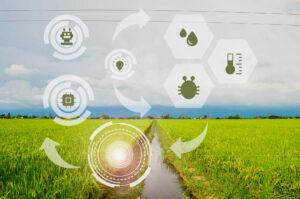Portugal’s Green Tech Revolution: Leading the Sustainable Future
Portugal has emerged as a dynamic hub for green technology innovation, leveraging its strategic location, renewable energy infrastructure, and forward-thinking policies to nurture a thriving ecosystem of sustainable startups. The Portugal Tech Hub supports this transformation by connecting innovators with resources and opportunities across the nation. From the sun-soaked plains of Alentejo to the Atlantic coastline stretching over 1,187 kilometers, the country has transformed its natural advantages into a laboratory for environmental innovation.

The Portuguese green tech sector attracted €600 million in funding during 2024, positioning the nation as a European leader in the green transition. This remarkable growth reflects Portugal’s commitment to achieving carbon neutrality by 2050 and its strategic vision to integrate sustainability across all economic sectors. With over 4,700 startups in Portugal operating across the country and green tech companies growing at nearly twice the rate of the national economy, the investment opportunities in sustainable innovation are compelling.
Renewable Energy Pioneers Transforming Portugal’s Energy Landscape
Portugal’s renewable energy sector stands at the forefront of the country’s green transformation, with ambitious targets to achieve 80% renewable electricity consumption by 2030. The nation’s commitment to clean energy has attracted both established corporations and innovative startups developing cutting-edge solutions.
Greenvolt has positioned itself as Portugal’s principal reference in biomass energy production from residual forest biomass. Operating multiple biomass plants in Portugal and the United Kingdom, Greenvolt develops large-scale projects combining solar, wind, and energy storage technologies across 18 international markets. The company’s integrated approach encompasses utility-scale development and decentralized energy generation, demonstrating how renewable energy companies are transforming Portugal’s energy landscape.
Coopérnico represents a unique cooperative model in Portugal’s energy transition. As the only non-profit energy company with national coverage, this social enterprise enables citizens to become co-owners of renewable energy projects. Their innovative crowdfunding model has democratized investment in solar installations, allowing individuals and organizations to produce their own renewable energy without bearing the initial investment burden. This community-driven approach exemplifies Portugal’s inclusive vision for the energy transition.
The renewable energy ecosystem extends beyond electricity generation. SunEnergy, with over a decade of experience, specializes in turnkey solar solutions for residential and commercial applications. Their comprehensive offerings include photovoltaic systems, thermal solar solutions, and electric vehicle charging infrastructure, helping Portuguese businesses and households reduce electricity costs by up to 70%.
Hydrogen Technology: Portugal’s Green Fuel Revolution
Portugal has positioned itself as a European leader in green hydrogen development, with the National Hydrogen Strategy (EN-H2) outlining ambitious plans to leverage the country’s renewable energy capacity for hydrogen production. The sector represents a critical pillar in Portugal’s decarbonization strategy, targeting applications in heavy transport, maritime shipping, and industrial processes.

Fusion Fuel stands as Portugal’s flagship green hydrogen innovator, having developed revolutionary solar-to-hydrogen technology that concentrates solar radiation 1,500 times to produce hydrogen with exceptional efficiency. Their H2Évora project marked Portugal’s first integrated solar-to-green hydrogen plant, featuring proprietary HEVO-Solar units that combine concentrated photovoltaic technology with water electrolysis. The company exemplifies how technology companies in Portugal are pioneering sustainable solutions with global impact. The company’s flagship HEVO-Portugal project in Sines, approved under the EU’s Important Projects of Common European Interest (IPCEI) program, represents a €650 million investment to produce 62,000 tonnes of green hydrogen annually.
The company’s innovative approach has attracted international partnerships, including collaboration with Ballard Power Systems for fuel cell integration. Their projects span from small-scale demonstrations to massive industrial installations, with plans to export green ammonia from the Port of Sines to Rotterdam, establishing Portugal as a key node in Europe’s emerging hydrogen economy.
Portuguese hydrogen initiatives extend beyond production technology. The government has allocated substantial funding through recovery and resilience programs, supporting projects that integrate hydrogen into existing industrial processes. The ceramics industry in Aveiro, refineries, and cement manufacturers are among the early adopters exploring hydrogen as a replacement for natural gas, demonstrating real-world applications of this transformative technology.
Circular Economy Innovators Reshaping Waste Management
Portugal’s circular economy sector has gained significant momentum, with startups and established companies developing innovative solutions to transform waste into valuable resources. Despite current recycling rates of 21-23% for urban waste, the sector shows tremendous growth potential as Portugal works toward EU targets of 65% recycling by 2030.
Circular Unity exemplifies Portugal’s leadership in sustainability management technology. Their impactALL platform revolutionizes carbon footprint tracking, ESG reporting, and circularity management by integrating artificial intelligence, computer vision, and IoT sensors. This cutting-edge solution enables enterprises to automate data collection and reporting with unprecedented precision, addressing the growing demand for transparent sustainability metrics.
The Loop has evolved from a simple textbook resale platform into a comprehensive circular economy technology provider. Starting with Book in Loop in 2016, the Coimbra-based company now employs over 100 people and offers “circularity as a service” to other businesses. Their growth demonstrates how innovation in Portugal extends beyond traditional sectors into transformative business models. Their expertise spans reverse vending machine software for bottle deposit systems to intelligent bulk buying solutions, positioning them at the forefront of Portugal’s deposit return system implementation scheduled for 2025.
The textile sector has seen innovative approaches through initiatives like Vintage for a Cause, which transforms industrial textile waste into vintage-style clothing while providing training and employment opportunities for women across 18 Portuguese municipalities. Similarly, NADA NOVO promotes the reuse of construction materials, addressing one of the most resource-intensive industries through circular principles.
Food waste reduction has attracted significant innovation, with NÃM creating an urban farming model that transforms coffee grounds collected in Lisbon into mushroom cultivation and natural fertilizer production. Processing three tonnes of coffee grounds monthly, NÃM produces up to one tonne of mushrooms and four tonnes of fertilizer, demonstrating the potential for urban circular economy solutions.
Ocean Technology: Blue Economy Leadership
Portugal’s extensive maritime heritage and coastal geography have fostered a vibrant blue economy ecosystem, with the government committing to double the sector’s contribution to 5% of GDP. The country’s ocean technology startups leverage this natural advantage to develop solutions addressing global maritime challenges.

Neuraspace, based in Coimbra, has secured over €2.5 million in funding for its AI-powered space traffic management system. Their technology predicts and prevents satellite collisions, addressing the critical challenge of space debris that threatens maritime communications and navigation systems. This convergence of space and ocean technology exemplifies how digital transformation is reshaping traditional industries in Portugal.
The Bluetech Accelerator, launched by the Ministry of the Sea in partnership with Beta-i, has become a catalyst for maritime innovation. The program connects startups with established maritime industry players, focusing on digital transformation in ports and shipping. Notable participants include Bound4Blue’s wing sail technology for reducing maritime fuel consumption and various blockchain solutions for supply chain transparency.
Marine biotechnology represents another frontier, with Inclita Seaweed Solutions in Matosinhos developing functional seaweed extracts for commercial applications. The Blue Bio Value accelerator, Portugal’s first program dedicated to marine bioeconomy, supports startups transforming marine resources into sustainable products ranging from bioplastics to nutraceuticals.
Portugal’s commitment to ocean sustainability extends to infrastructure development. The country has invested in “smart ports” initiatives, integrating IoT sensors, artificial intelligence, and blockchain technology to optimize maritime operations while reducing environmental impact. These efforts position Portuguese ports as testbeds for next-generation maritime technologies.
Investment Landscape and Government Support
The Portuguese government has implemented comprehensive support mechanisms for green tech innovation, creating one of Europe’s most favorable environments for sustainable startups. The Blue Fund allocates €30 million annually to ocean-related ventures, while Component 14 (C-14) of the Recovery and Resilience Plan provides substantial grants for green hydrogen projects.
Venture capital has responded enthusiastically to Portugal’s green tech potential. Indico Capital Partners launched a €50 million Blue Economy fund, attracting international limited partners, particularly from the United States. The fund invests from pre-seed to growth stages, with tickets ranging from €100,000 to €5 million, focusing on technologies contributing to UN Sustainable Development Goals.
Portugal’s startup-friendly policies extend beyond funding. The Startup Visa and Tech Visa programs facilitate international talent acquisition, while R&D tax incentives and regulatory sandboxes enable rapid innovation testing. The country’s membership in the European Union provides access to broader funding programs, including Horizon Europe and the European Investment Bank’s green transition facilities.
The investment ecosystem benefits from strong collaboration between academia, research institutions, and industry. Over 50 marine research centers and partnerships with universities like the University of Porto and University of Coimbra ensure a steady pipeline of technical talent and research-driven innovations.
Future Outlook: Portugal’s Green Tech Trajectory
Portugal’s green tech sector stands poised for exponential growth as global demand for sustainable solutions accelerates. The country’s strategic advantages – abundant renewable resources, supportive policies, and growing investment ecosystem – position it as a European leader in the green transition.
Key growth areas include offshore wind development, with plans for 10 GW of capacity by 2030, and the emerging green hydrogen economy, where Portugal’s solar resources and strategic location create natural competitive advantages. The circular economy sector shows particular promise as EU regulations drive demand for sustainable packaging and waste reduction technologies.
International collaboration will play a crucial role, with Portuguese startups increasingly partnering with global corporations and expanding into international markets. The country’s position as a gateway to Africa and Latin America, combined with its EU membership, creates unique opportunities for green tech companies to scale globally.
Success factors for continued growth include maintaining policy stability, ensuring adequate funding for early-stage ventures, and developing specialized talent in emerging technologies. Portugal must also address infrastructure challenges, particularly in grid capacity and hydrogen transportation, to fully realize its green tech potential.

Portugal’s green tech innovation landscape demonstrates how a country can leverage natural advantages, smart policies, and entrepreneurial energy to become a leader in sustainable technology. From Fusion Fuel’s revolutionary hydrogen production to Circular Unity’s AI-powered sustainability platforms, Portuguese companies are developing solutions with global impact.
The convergence of renewable energy expertise, circular economy innovation, and ocean technology leadership creates a unique ecosystem where cross-sector collaboration drives breakthrough innovations. As the world accelerates toward net-zero targets, Portugal’s green tech companies offer both technological solutions and business models that can be replicated globally.
For investors, entrepreneurs, and corporations seeking to participate in the green transition, Portugal presents compelling opportunities. The combination of proven success stories, emerging technologies, and strong government support creates an environment where sustainable innovation can thrive. As these companies mature and scale, they will play an increasingly important role in Europe’s green economy and global sustainability efforts.
